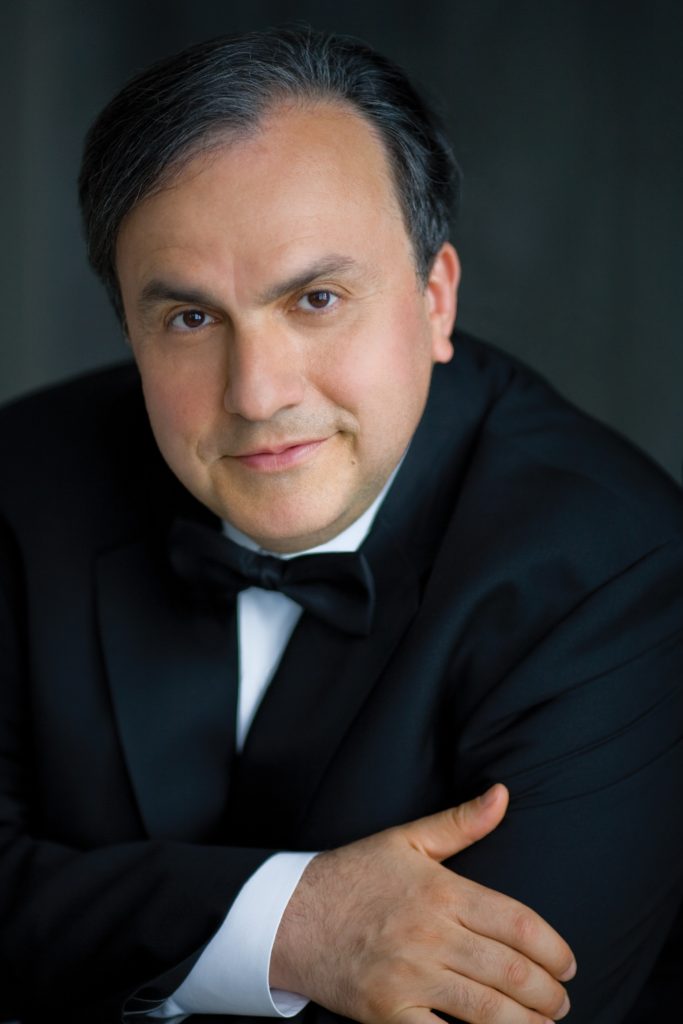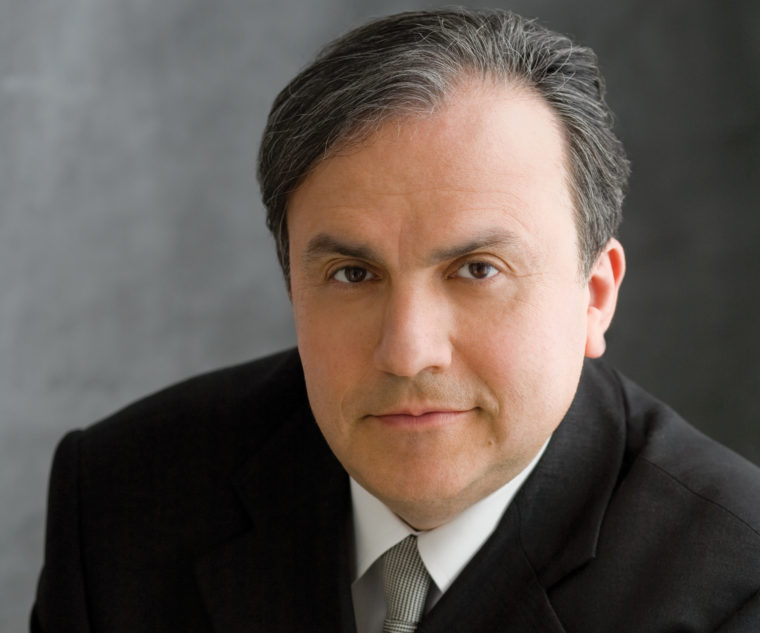Love and pain, empathy and irony, earnest reflection and sharp-witted detachment.
Robert Schumann’s “Humoreske” in B-flat Major, Op. 20, is a study in contrasts. Composed in 1839, a year before his marriage to the pianist Clara Wieck, the piece is light-hearted and episodic but shot through with strains of loss and melancholy.
“The whole week I have been sitting at the piano,” Schumann wrote to Wieck upon the work’s completion, “composing and writing, laughing and crying all at once.”
At 7 p.m. April 23, internationally acclaimed pianist Yefim Bronfman will perform Schumann’s “Humoreske” in Washington University’s E. Desmond Lee Concert Hall. The program, which also includes music of Béla Bartók, Claude Debussy and Igor Stravinsky, is presented by the Department of Music in Arts & Sciences at Washington University in St. Louis as part of its inaugural Great Artists Series.
Program
“His energy emanates from his fingers and swirls out of the piano with such perfection that every note grabs the ear with an expressive, singing quality.”
The Washington Post
The performance will open with Bartók’s Op. 14 Suite. Composed in 1916, the Suite incorporates lessons — irregular rhythms, simple melodies — absorbed from Bartók’s study of East European folk music. Indeed, he observed, a composer should strive to “assimilate the idiom of folk music so completely that he is able to forget all about it.”
The program will continue with Schumann’s “Humoreske,” followed by Debussy’s “Suite bergamasque.” Published in 1905, the piece was actually based on pieces Debussy composed in 1890, while still a student. Though structured in four movements, the Suite’s third piece, “Clair de Lune,” has emerged as one of the most popular works in the piano repertoire — to such a degree that the full “Suite bergamasque” is performed comparatively rarely.
Concluding the program will be Stravinsky’s “Petrushka.” Written as a ballet score in 1910-11, “Petrushka” was inspired by Russian folktales of the titular puppet, whom the composer described as “the immortal and unhappy hero of every fair in all countries.” The piece is also widely considered to be Stravinsky’s first fully mature work, pointing away from late-Romantic orchestration and towards audacious rhythmic structures that would revolutionize modernist music.
Yefim Bronfman

One of today’s most “incisive and exhilarating” (Chicago Tribune) pianists, Bronfman is renowned for his commanding technique and exceptional lyrical gifts. He has appeared with leading orchestras and given solo recitals in major halls around the world, including his acclaimed debuts at Carnegie Hall in 1989 and Avery Fisher Hall in 1993.
Widely praised for his solo, chamber and orchestral recordings, Bronfman is a three-time Grammy nominee and winner, in 1997, for his recording of the three Bartók Piano Concerti, with Esa-Pekka Salonen and the Los Angeles Philharmonic. Other honors include the 1991 Avery Fisher Prize, one of the highest honors given to an American instrumentalist.
Tickets and schedule
Single tickets are $35, or $32 for seniors and Washington University faculty and staff, and $15 for students and children.
The Great Artists Series will continue May 5 with Nathan Gunn. The program will include music of Henry Purcell (as realized by Benjamin Britten), Dominick Argento, Roger Quilter, Ben Moore and Charles Ives, as well as traditional Irish folk songs arranged by Julie Gunn.
Performances take place in the E. Desmond Lee Concert Hall of the 560 Music Center, located at 560 Trinity Ave., at the intersection with Delmar Boulevard. Tickets are available through the Edison Theater Box Office, 314-935-6543, or at edison.wustl.edu.
For more information, call 314-935-5566 or email daniels@wustl.edu.
